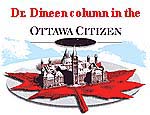


How About Recovering Integrity?
July 4, 1998
|
Finally, a psychological association has ended the profession's deafening silence on the topic of "recovered memories." In its recent policy statement, the Canadian Psychological Association recognized "that justice may not have been served in cases where people have been convicted of offences based solely upon 'repressed' or 'recovered' memories of abuse." The association now wants the justice minister to "conduct a special inquiry into this category of convictions" because "the state of our knowledge about repressed or recovered memories suggests that such memories, if they exist, may not be sufficiently reliable to serve as the sole basis for a criminal conviction." On first reading, this statement seemed commendable. But wait a minute. If what they said is true, then why have psychologists and psychotherapists alike been conducting recovered memory therapy? Why have they been standing up in courts as experts testifying to the believability of these memories? And why has the psychology association done nothing to warn the public and the courts? And why is the association putting the onus on the justice minister to act when the problem comes from within psychology? It is not the justice system that has manufactured and endorsed these "memories". The courts, the judges and the juries have only accepted what they have been told by psychology. And the profession has yet to omit that recovered memory theory and therapy is untested, unproven and unsafe. The psychology industry is avoiding any mention of its own role in the possible wrongful convictions. It expresses no remorse for those people wrongly serving jail terms or for their accusers, who see themselves as victims and are tormented by horrible "memories" of events which may never have happened. When fanciful theories and opinions clothed in professional jargon can do such harm, you might expect psychologists finally to be willing to shed their arrogance and voice some self-doubt. But many psychologists have carved out careers selling so-called recovered memory and other unsubstantiated notions both to their patients and to the courts. And they are worried now not just about their careers but about legal repercussions. In the United States, psychologists are embroiled in civil suits initiated by both former patients and those they have accused. In a recent case against Renee Fredrickson, a psychologist and the author of a popular book on repressed memories, a former patient claimed Fredrickson used hypnosis, guided imagery, dream interpretation, automatic writing and misinformation and suggestion to implant false memories of incest and ritual cult abuse. She said these led to false accusations that shattered her family: "Had I been informed of the dangers I would never have dreamed of submitting to the procedure." In the end, the case was settled before the trial date for $175,000 - a small sum compared to a $5.8- million settlement in a Texas case and a $10.6-million Illinois settlement. What should concern us as potential consumers is that in all of these cases, and numerous others, too, the psychologists are still licensed and practising, their own professional organizations having imposed no sanctions. In light of its members' concerns, the Canadian Psychological Association's statement would appear to have tact, if not integrity. How could it acknowledge short-comings that would hurt careers, tarnish the profession's public image and open the doors to a flood of civil suits? The dilemma it finds itself in, however, is that in failing to be up front it is defaming the science that is the very foundation of the profession. "The aim of science," as Bertolt Brecht wrote in The Life of Galileo, "is not to open the door to everlasting wisdom, but to set a limit on everlasting error." In response to the current concern with recovered memory, psychologists should be admitting the limits of their knowledge, admitting openly that they don't hold the key to everlasting wisdom. They should admit they were in error when they led the courts to accept their unscientific opinions. And they should be setting the record straight by telling the public and the courts about the legitimate psychological research in human memory - data that has always questioned the notion of recovered memory. The tobacco industry has been severely reprimanded for promoting cigarettes when its own research showed they harm people. Psychology is in a similar situation; it knows but says nothing. Perhaps we should hold our applause for the psychology association until it comes clean. Will we wait in vain? |
tanadineen.com
@ Dr.Tana
Dineen
1998-2003
by
Dr. Tana Dineen, special columnist,
The Ottawa Citizen